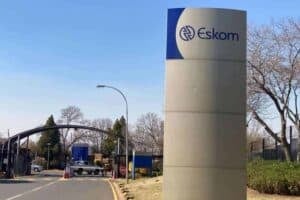The power utility is focused on improving maintenance and repairs to ensure increased energy availability, says Mabuza.

Deputy President David Mabuza says the privatisation of Eskom is not the answer for the power crisis the country has been facing, with the South Africans now having to struggle through with stage 4 load shedding.
In a statement on Wednesday, Eskom announced stage 4 load shedding would continue on Thursday and Friday, with the possibility of lower stages being implemented from Saturday.
The extension of stage 4 load shedding was a result of further breakdowns of a generation unit each at Kendal and Majuba due to tube leaks. It said it would continue with its planned maintenance to address known risks at Arnot, Kriel, Matimba, Matla and Camdem power stations.
Mabuza responded to questions for oral reply in the National Assembly on Thursday, where one of the questions covered issues on Eskom and the transformation of the energy sector to achieve long-term energy security.
ALSO READ: Eskom lacks project management skills to execute on maintenance – expert
“Government’s policy options and position have not reached a point where privatisation is seen as the answer to providing better solutions to current challenges facing Eskom,” said Mabuza.
“Our current choice is to make Eskom a more efficient and effective energy generation and transmission public entity with all the necessary capabilities to ensure the security and consistency of energy supply, in the interest of both the economy and human development in general.”
Generation, Transmission and Distribution
Mabuza said characterising the current organisational transformation processes at Eskom as privatisation would be inaccurate.
“Instead, the utility is currently in an advanced stage of the process of unbundling, which will result in the transformation of the electricity sector in order to achieve long-term energy security for our country.”
The power utility is focused on improving maintenance and repairs to ensure increased energy availability, and these have nothing to do with privatisation or public ownership of the utility, said Mabuza.
The unbundling or legal separation of Eskom into three subsidiary businesses: Generation, Transmission, and Distribution, is designed to enable Eskom management to focus, improve efficiency, create greater transparency around performance, and provide greater protection against corruption and rent-seeking said the deputy president.
“In order to realise the potential of an independent transmission system and market operator, the primary purpose of unbundling is to separate the generation and transmission of electricity from one another. Given this information, the creation of a new Transmission Entity is the most important step in Eskom’s unbundling process.
“Eskom Holdings will have complete ownership of the new Transmission Entity when it is established. Its primary responsibilities will include acting as an independent broker in the electricity market, fostering capital investment within the industry, and catalysing energy efficiency and cost sustainability.
It is to be envisaged that the Transmission Entity will have Electricity Supply Agreements directly with consumers including Eskom Distribution, municipalities, the Southern African Power Pool, and Large Power Users.”
The utility, according to Mabuza, is on track to split its generation and distribution businesses by the end of 2022.
“What we should continue to focus on is getting Eskom back to its optimal performance, by ensuring that the entity has sound governance structures in place, and that the required skills levels are met at the power plant level.”
Compiled by Vhahangwele Nemakonde






